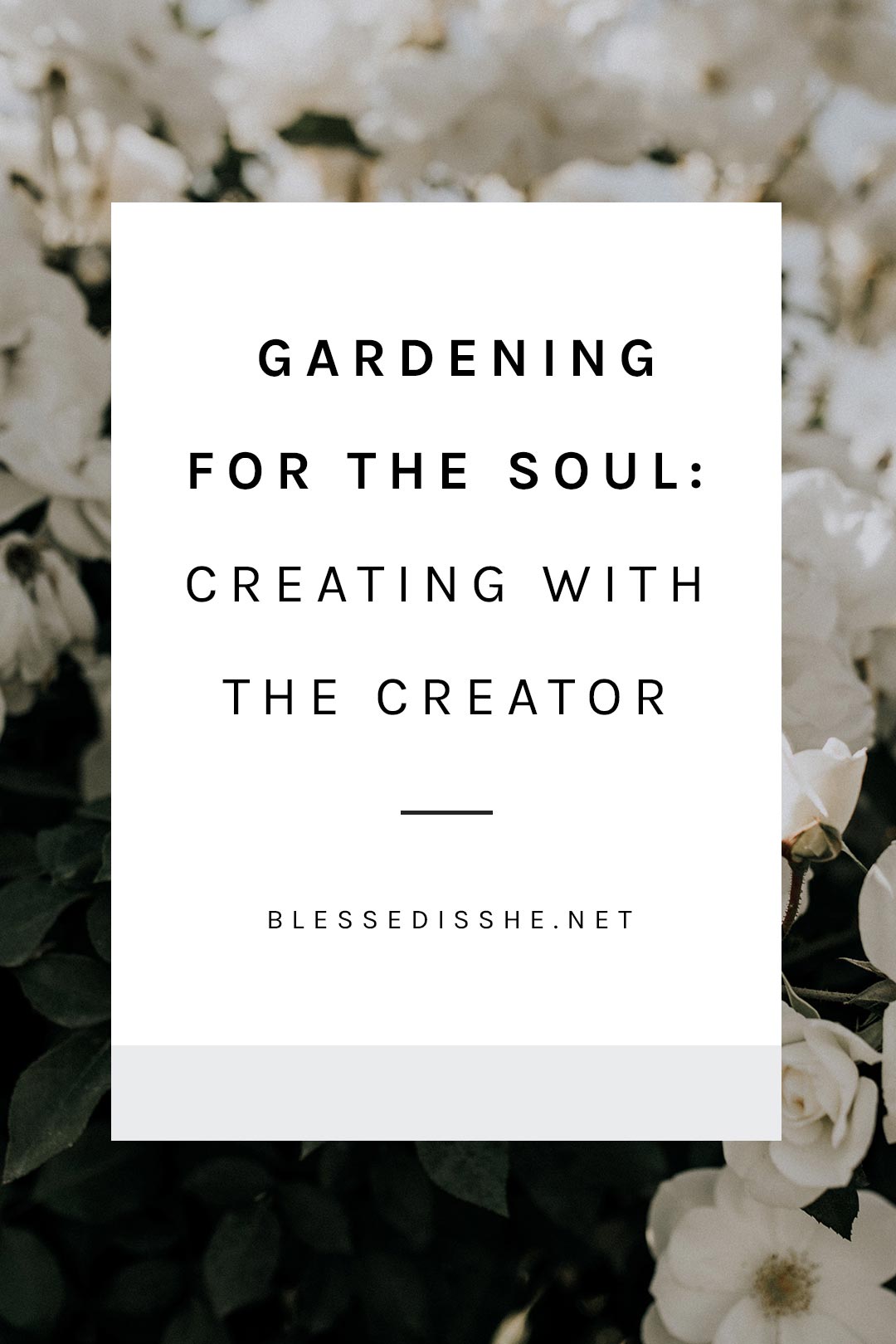
Listen! A sower went out to sow. -Matthew 13:3
Growing up, we watched a lot of nature shows in our house. In that time, I got a good sampling of time-lapse photography and the wonder that is subtle change over time. This demonstration is no less impressive whether watching the evolution of a coral reef, changing fall foliage, or the growth of a child.
It is sheer wonder.
Knowing that I am invited—encouraged even—to participate in this creation event by way of facilitating growth is irresistible. It is one of the characteristics about God that I find most endearing. Rather than keeping the magic of cultivating beauty and life to the realm of Heaven and the work of God alone, our very sustenance comes from that ability to create alongside the Creator, in any number of ways.
God seemingly delights in our efforts!
Gardening and Scripture
Scripture is littered with parables having everything to do with planting, growing, harvesting, yielding, and weeding. Each would have been familiar practices to listeners hearing these stories long before and long since they were recorded in the canon. These stories are hands-on illustrations of the Kingdom of God.
For these reasons and many others, I am aware of the very nourishing act it is to physically get myself into the dirt. Old shoes, muddy jeans, floppy hat. Everything about gardening is tactile and metaphor. So to be a gardener is basically to learn like a child.
In doing so, here are some familiar truths that I am reminded of each growing season.
God made dirt and dirt don’t hurt.
Soaked knees and nose in the earthy aroma of spring dirt is the posture of one creating (Genesis 2:7). Mud under my fingernails and in the calluses on my hands is the most authentic sign that this season has begun. And isn’t that true? Some of the most important work we do lingers with us (whether we like it or not). Think of the scrubs worn by healthcare professionals at daily Mass, the fifteen passenger van for the childcare provider, circles under the eyes of the overnight shift worker, sun tan on the arms of the farmer, paint on the hands of the painter.
One of the most gratifying things to see is a child (or adult!) learning the gift of getting messy—being so invested in the work they are undertaking that they can no longer separate themselves from it, or remain untouched by it. This is the heart of incarnational theology.
Let nothing be wasted.
Compost is my favorite part of this equation—not the most important, but the one that has taught me the most. When we moved into our home, we cajoled my brother into building us a compost bin out by the garden. As our children grew and learned where to go with trash like banana peels, we’d encourage them to feed it to the worms. We’d take our compost out, turn it with a pitchfork, and un-earth the hundreds of worms working hard to turn our coffee grounds, tea bags, chicken poop, lawn clippings into the very fertilizer we depend on to supply our tomato plants with nutrient in our clay-like, western soil.
So much can be said about not wasting the tiniest incidental, just like in the multiplication of the loaves and fishes in John’s Gospel when the leftovers were gathered together (John 6:12). It all gets used, and it makes the yield that much bigger. Who but God would have imagined that even the smelly, used-up gunk that we’d prefer to pitch at the first sign of odor would become life-giving sustenance to new life?
Hope.
I really don’t believe that a person can be a grower of anything without harnessing the spirit of hope. Why else would we take perfectly good seeds and bury them in the dark, damp dirt? Or, bolder still, after nurturing tiny seedlings in windowsills all winter, what would inspire anyone to plant them in the ground where hail, rabbits, and scorching sun can have their way with them? Why not keep them safely tucked inside where they will not be exposed to the elements?
Our hope of course, is that despite all odds, these vulnerable, unlikely sprouts will defy our cynical expectations and thrive. And thrive they do! From a tiny seed, we see fountains of zucchini, explosions of cherry tomatoes and green beans.
This is the most exciting metaphor when we imagine ourselves, or our children, as these vulnerable seedlings in a world of risks and unforeseeable circumstances. We dig in, not because it is safe, or because we have a perfect forecast, but simply because it is the only equation that results in growth.
The Capable Hands of Our Creator
We can trust that we are in the capable hands of the very Creator who delights in our thriving and growth, despite the challenges. The same One who chose to begin life in a garden continues to nurture us in much the same way. By tending, planting, tilling, and weeding, much fruit is yielded. Would that we take comfort and hope that when compost is applied, or we find ourselves in need of pruning, we are in the capable hands of the Master Gardener.
Gardening for the Soul: Creating with the Creator #BISblog //Click to tweet






























